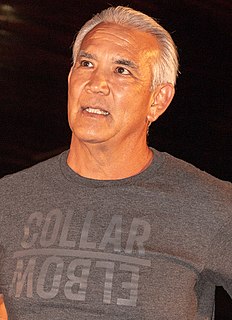A Quote by Hermann Hesse
What he had not learned, however, was this: to find contentment in himself and his own life
Related Quotes
There was once a man, Harry, called the steppenwolf. He went on two legs, wore clothes and was a human being, but nevertheless he was in reality a wolf of the steppes. He had learned a good deal of all that people of a good intelligence can, and was a fairly clever fellow. What he had not learned, however, was this: to find contentment in himself and his own life.
First of all, although men have a common destiny, each individual also has to work out his own personal salvation for himself in fear and trembling. We can help one another to find the meaning of life no doubt. But in the last analysis, the individual person is responsible for living his own life and for "finding himself." If he persists in shifting his responsibility to somebody else, he fails to find out the meaning of his own existence. You cannot tell me who I am and I cannot tell you who you are. If you do not know your own identity, who is going to identify you?
Each man had only one genuine vocation - to find the way to himself....His task was to discover his own destiny - not an arbitrary one - and to live it out wholly and resolutely within himself. Everything else was only a would-be existence, an attempt at evasion, a flight back to the ideals of the masses, conformity and fear of one's own inwardness.
And he began to see the truth, that Ged had neither lost nor won but, naming the shadow of his death with his own name, had made himself whole: a man who, knowing his whole true self, cannot be used or possessed by any power other than himself, and whose life therefore is lived for life's sake and never in the service of ruin, or pain, or hatred, or the dark.
As a child, he had hardened his heart and learned to take their punches. He had learned to spit back and take down anyone who cast a jaundiced eye or who made a comment about either him, his mother, or his sister. He’d told himself that he didn’t need anyone’s love or caring. And so he had learned to live like a feral animal, always ready to strike out when someone tried to touch him.
However tiresome to others, the most indefatigable orator is never tedious to himself. The sound of his own voice never loses its harmony to his own ear; and among the delusions, which self-love is ever assiduous in attempting to pass upon virtue, he fancies himself to be sounding the sweetest tones
I believe that Jesus would have given His life for just one person. Jesus emptied Himself, He humbled Himself and He so yielded Himself to His Father's love that He had no ambition of His own. He was not looking to build an empire, He did not want praise or adulation or to impress people with who or how many followed Him. He stopped over and over again for just one person, for just one life.
In the absence of government each man learns to think, to act for himself, without counting on the support of an outside force which, however vigilant one supposes it to be, can never answer all social needs. Man, thus accustomed to seek his well-being only through his own efforts, raises himself in his own opinion as he does in the opinion of others; his soul becomes larger and stronger at the same time.
Someone who does not draw strength from himself and who is incapable of finding the meaning of his life within himself will...seek the map to his own orientation somewhere outside himself-in some ideology, organization, or society, and then, however active he may appear to be, he is merely waiting, depending. He waits to see what others will do, or what roles they will assign to him, and he depends on them-and if they don't do anything or if they botch things, he succumbs to disillusion, despair, and ultimately, resignation.
With only one life to live we can't afford to live it only for itself. Somehow we must each for himself, find the way in which we can make our individual lives fit into the pattern of all the lives which surround it. We must establish our own relationships to the whole. And each must do it in his own way, using his own talents, relying on his own integrity and strength, climbing his own road to his own summit.
From these Christians who came to [Avalon] to escape the bigotry of their own kind I learned something, at last, of the Nazarene, the carpenter's son who had attained Godhead in his own life and preached a rule of tolerance; and so I came to see that my quarrel was never with the Christ, but with his foolish and narrow priests who mistook their own narrowness for his.



































